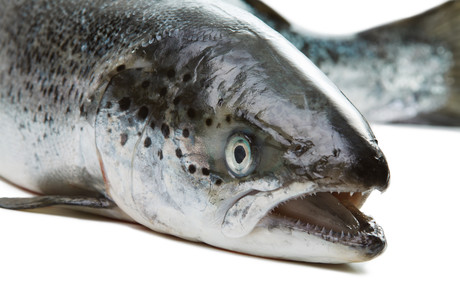When is a salmon not a salmon?

Answer: if it’s actually a trout. If you have bought Norwegian salmon in China recently it is quite likely that rather than the imported salmon you were expecting, you received farm-raised rainbow trout.
But don’t worry, the China Fisheries Association is insisting that ‘salmon’ is a mere marketing term and several species of fish including the Atlantic salmon, Pacific salmon and rainbow trout can be called salmon.
The Norwegian Seafood Council has invested heavily in marketing salmon in China, and as popularity of the fish has risen local governments and entrepreneurs have seen a money-making opportunity and set up fish farming operations.
The fish substitution scandal came to light after a report by the state broadcaster which revealed that one-third of the salmon sold in China is actually rainbow trout farmed on the Tibetan plateau.
The Qinghai region produces 30% of China’s overall salmon output and the ‘fake’ salmon were raised in the 383 km2 Qinghai reservoir. Located at an altitude of 2600 m, this reservoir is home to the biggest salmon and rainbow trout farm operations in China.
With so much confusion in the marketplace, the furore over the Qinghai ‘salmon’ will potentially trigger wider demands for traceability and transparency in labelling from China’s seafood consumers with the potential to move into other food categories.
Embracing and declaring full traceability will be a feat slowly achieved in China, and in the meantime, seafood and other produce purchasers in China should be sceptical about provenance and identity claims.
Certification schemes like the Aquaculture Stewardship Council and the Marine Stewardship Council, which are trying hard to get a foothold in China, will eventually help, and some Chinese seafood exporters have already secured international certification to bolster their credibility.
Aus red meat shares 78% reduction in emissions since 2005
The Australian red meat industry shares its 78% reduction in greenhouse gas emissions since 2005.
Colour trends: ingredients inspired by nature
EXBERRY by GNT highlights consumers' growing eco-consciousness and new colour directions...
Acidic sensory study reveals subset of adult 'sour likers'
A study by Penn State researchers revealed that roughly one in eight adults like intensely sour...












